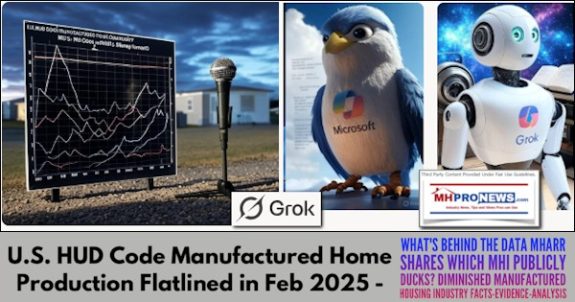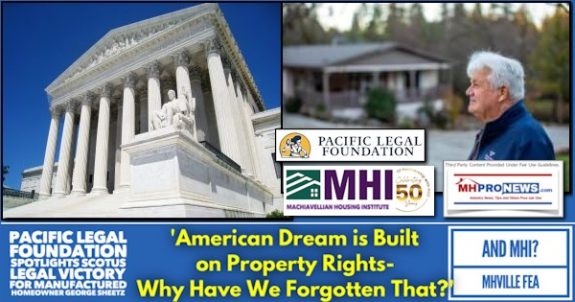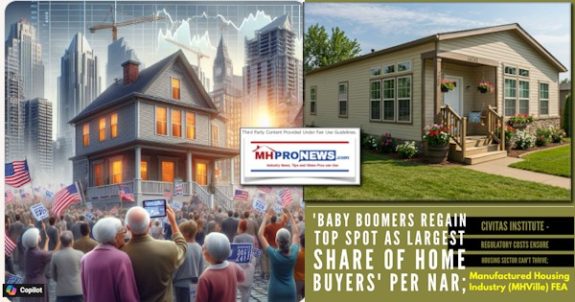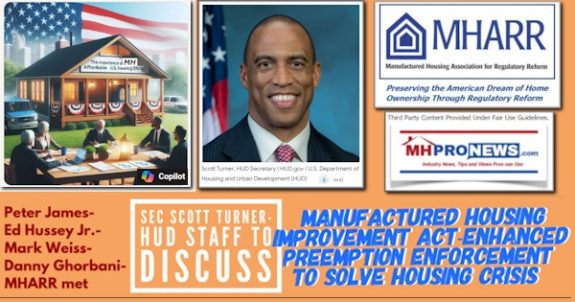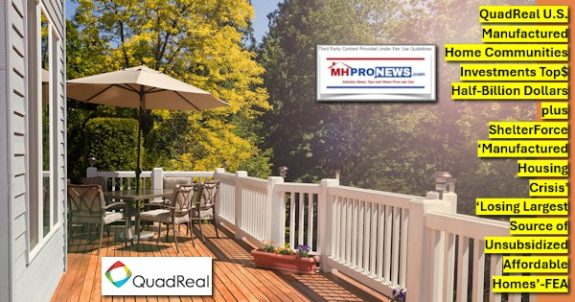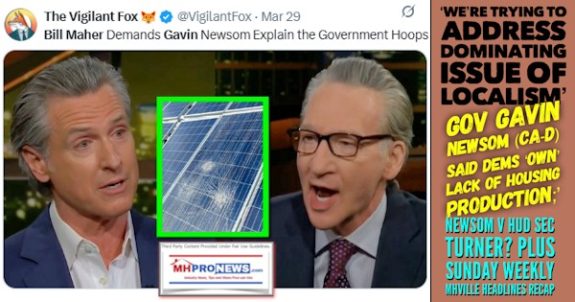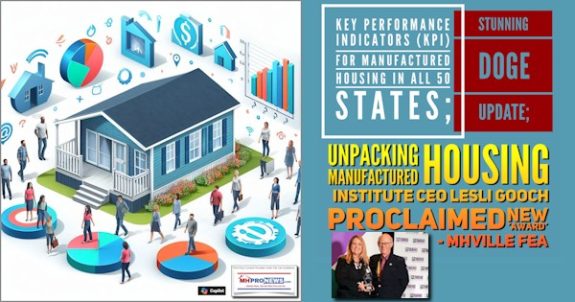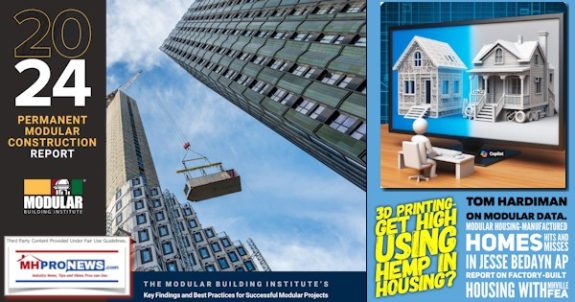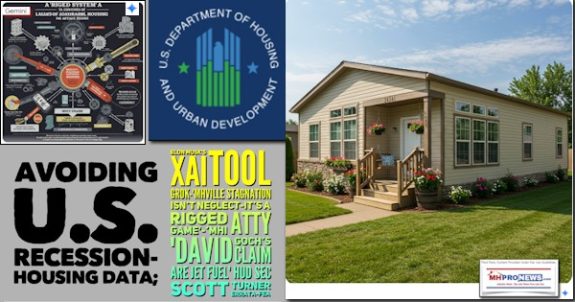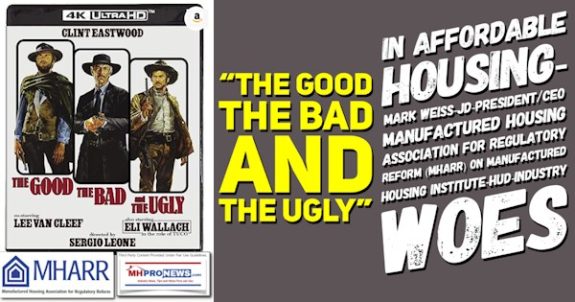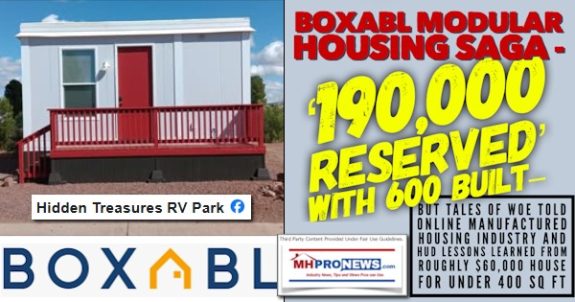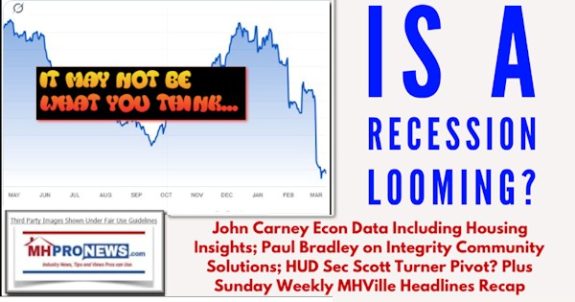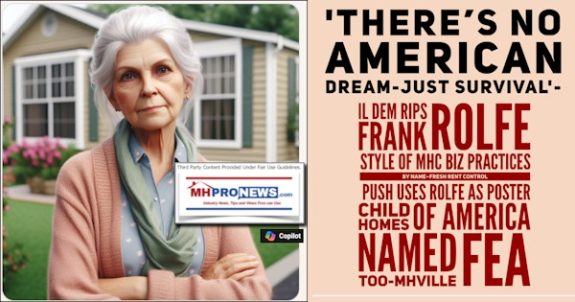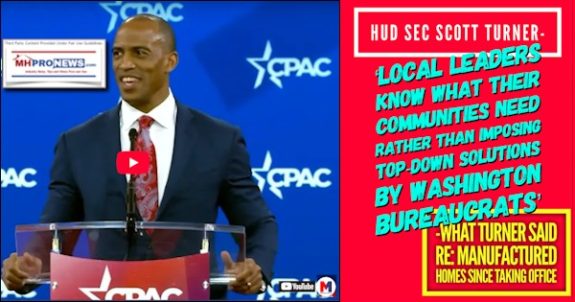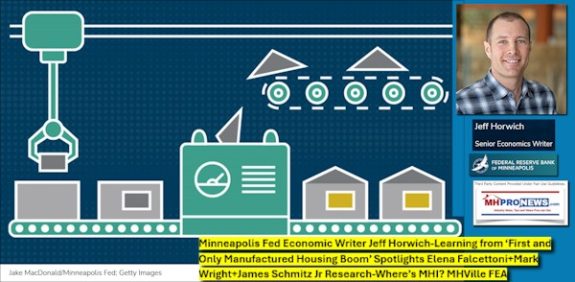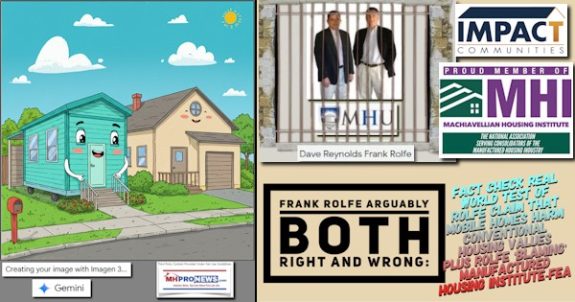
MHI Sets Industry Priorities for 2012
During MHI’s 75th Annual Meeting on October 2-4 in Phoenix, MHI members and the Board of Directors outlined priorities for the industry and the association in preparation for 2012.
2011 has been a pivotal year for MHI and the industry as we have embarked on critical issues to reduce regulatory burdens and increase our presence in Washington, DC. However, significant economic headwinds, a fragile housing market, and an active legislative and regulatory environment still threaten the industry.
The priorities detailed below represent the collective input of manufacturers, lenders, community owners, state associations, retailers and suppliers—the entire MHI membership. It is important to note that MHI‘s policy focus is not limited to this list and remains engaged on all issues related to the industry.
Priority: Financial Regulatory Implementation and Overhaul
The Dodd-Frank Wall Street Reform and Consumer Protection Act (H.R. 4173; P.L. 111-517) was enacted into law on July 21, 2010. The law is considered the most significant rewrite in decades of rules governing banking and financial services and will impact every financial institution and credit instrument in the nation.
To minimize the Act’s potential to restrict the availability of manufactured home financing, MHI has worked to develop bipartisan legislation to amend portions of the Dodd-Frank and minimize potential negative consequences of the Act to existing homeowners, potential buyers and industry stakeholders.
Through 2012, MHI will continue its work to enact legislative and regulatory measures that minimize the Act’s impact on the manufactured housing industry.
Priority: SAFE Act Implementation
On June 30, 2011, the Department of Housing and Urban Development (HUD) released its final rule implementing the Secure and Fair Enforcement of Mortgage Licensing Act (SAFE Act). In addition, as of July 21, 2011 enforcement of the SAFE Act now falls under the jurisdiction of the CFPB, which will have the task of enforcing the final rule.
While the final rule provides necessary clarification on activities that must occur in order for an individual to be considered a mortgage originator—thereby subject to licensing and registration requirements—the rule does contain some ambiguity and uncertainty with regards to state ability to exempt those that: are not engaged in mortgage origination on a habitual basis or in a commercial context; or manufactured home retailers that merely assist buyers in applying for credit but are not otherwise engaged in mortgage origination activities.
Legislative clarification is needed to ensure those state-level regulators, that have authority for implementing SAFE Act-compliant state laws, have the ability to refrain from regulating manufactured home retail-only activities and those originating manufactured home loans on a minimal basis.
Through 2012, MHI will continue its efforts to enact bipartisan legislation that clarifies state ability to exempt manufactured housing retailers and sellers and others providing limited levels of financing.
Priority: GSE Reform and Government’s Role in Housing
In February 2011, the Obama administration unveiled its broad plan for reforming the nation’s housing system as well as shrinking the role Fannie Mae and Freddie Mac play in the secondary housing finance market.
Recommendations outlined in the White House’s reform plan include winding down the role of Fannie Mae and Freddie Mac in order to establish a secondary market more dominated by private capital, in addition limiting the government’s involvement to supporting homeownership activities for very low- and low-income families.
Congress has followed up on the administration’s plan with the introduction of multiple bills scaling back the involvement of Fannie Mae and Freddie Mac in various piecemeal. This includes several bipartisan measures envisioning a significant overhaul of the federal housing finance system, each with varying levels of federal government involvement. Congress has yet to follow through in enacting legislation, which may not occur until late-2012.
MHI will continue to advocate that any reformed housing finance system must include private capital as the dominant source of market support. Any reformed system that has government involvement must provide a level and open access to manufactured home finance products, including personal property loans.
Priority: Tax Reform
Under the Energy Efficient Home Credit (I.R.C. Sec. 45L), builders that construct manufactured homes to Energy Star standards are currently eligible to receive a $1,000 tax credit for each home built; modular home builders are eligible to receive a $2,000 tax credit by exceeding the International Energy Conservation Code (IECC) by 50 percent. The credit is slated to expire at the end of 2011.
During the 112th Congress, Sen. Snowe and Rep. Reichert are again expected to introduce legislation extending and increasing the Energy Efficient Home Credit. MHI, along with a broad coalition of energy efficiency, environmental, and affordable housing organizations have expressed strong support for extending and expanding the Energy Star tax credit for manufactured and modular homes.
Priority: DOE Energy Efficiency Standards for Manufactured Housing
For nearly 35 years, the manufactured housing industry has constructed homes to a building code (HUD Code) that has been administered and enforced by HUD. During this time, the agency has served as the industry’s primary regulatory body. The HUD Code is uniquely designed to specifically address construction and design standards of manufactured homes. While EISA requires DOE to use the most current version of the IECC, this code was one that was specifically designed to meet the demands of site-built homes and was not intended to apply to the design and construction of manufactured homes. DOE anticipates it will publish a proposed rule by late-2010 or early-2011.
The development of energy efficiency standards without regard to their applicability to factory-built housing could potentially place the cost of homes beyond the reach of thousand of very low- and low-income families. This issue is potentially compounded by placing enforcement of energy efficiency standards with an agency that has no experience and record that lacks substantive experience or understanding of the manufactured housing industry.
MHI is working with Members of Congress to introduce legislation that would place responsibility for developing, implementing and enforcing energy efficiency standards within HUD’s jurisdiction. In addition, ensure that new standards strike a balance between energy efficiency and maximizing housing affordability for low-income families.
Priority: Manufactured Home Construction and Safety Standards
Preserving the Department of Housing and Urban Development’s (HUD) preemptive building code (HUD-Code) for manufactured housing is essential to maintaining the integrity and reliability of manufactured homes. However, many states and localities are establishing codes and regulations for manufactured housing that infringe upon HUD’s enforcement authority, which has led to an erosion of the preemptive aspect of the HUD-Code.
MHI is pressing the agency to take an active and role in protecting the industry’s preemptive building code by revising its outdated policy on preemption and exerting its rightful role as lead regulator of the manufactured housing industry.
Maintaining up-to-date codes and standards is another key way of ensuring the HUD-code maintains its preeminent position over state and local building regulations. As with other sectors of the construction industry, manufactured home builders rely on regular updates of codes and standards to enable them to design and build homes using the most efficient and reliable construction technologies. To accomplish this, MHI is working to ensure HUD implements a number of changes recommended by the Manufactured Housing Consensus Committee (MHCC).
For instance, since it began meeting in 2002, the MHCC has developed, for HUD’s review and approval, three sets of comprehensive changes to the HUD-Code. Unfortunately, HUD has issued a final rule on only one set of code changes.
Through 2012, MHI will continue to actively push HUD to issue code revisions and recommendations developed by the MHCC; develop an aggressive policy on preemption; and advocate for a non-career administration to oversee HUD’s manufactured housing program.
Priority: Weather Radios
In August 2011, the House Financial Services Committee approved legislation (H.R. 1751) that would require all new manufactured homes to be equipped with National Oceanic and Atmospheric Administration (NOAA)-approved weather radios. The bill mirrors legislation that was approved by the House of Representatives in 2009.
MHI believes that if the installation of weather radios is made mandatory, they should be required of all forms of housing, not just manufactured homes. Severe weather events, such as tornados and hurricanes, do not discriminate by housing type and neither should federal policy.
Through 2012, MHI expects to work closely with leaders of the House Financial Services and Senate Banking Committees to ensure the manufactured housing industry is not unfairly targeted or negatively impacted by any Congressional effort requiring the mandatory installation of emergency notification devices.
In addition, MHI has believes the Warning, Alert, and Response Network (WARN) public alert system—enacted into law in 2006—which is scheduled for full implementation in 2012, provides alerts nationwide over wireless network devices. All individuals, regardless of housing choice or location, would receive alerts of impending threats to public safety, including natural disaster warnings.
MHI Elects Leadership and Honors Individual Achievements
During MHI’s Annual Meeting, the following members were reelected to serve as MHI Officers in 2012: Chairman, Joe Stegmayer, Cavco Industries, Inc.; Vice Chairman, Don Glisson, Jr., Triad Financial Services, Inc.; Secretary, Kevin Clayton, Clayton Homes; and Treasurer, Nathan Smith, SSK Communities. Ken Cashin, Windstorm Holdings, Inc., will continue to serve on the Executive Committee in his role as Immediate Past Chairman.
The following members received awards during the annual awards dinner. Special thanks Triad Financial Services for their generous sponsorship of this event.
MHI Chairman’s Award
Tim Williams, President, 21st Mortgage Corporation
This award is presented by the MHI Chairman in recognition of outstanding contributions to the organization and industry.
As chairman of the Dodd-Frank Task force, Williams has overseen the development and implementation of the association’s strategy to address the harmful provisions of this landmark finance legislation. He was a key participant in identifying and analyzing the harmful provisions in Dodd-Frank, and has spent untold hours in drafting the industry’s legislative language, participating in conference calls, traveling to DC to meet with Members of Congress and traveling across the country to meet with legislators and other members of the industry to raise awareness about our issues.
Williams is currently the Vice Chairman of the Financial Services Division, and serves on the MHI Board of Directors.
State Association Executive of the Year
Deanna Fields, Executive Director, Manufactured Housing Association of Oklahoma
Each year, the manufactured housing industry honors one state association executive who leads the industry by example with tireless devotion, commitment and innovative thinking.
Fields achieved tremendous results with limited staff and declining resources and demonstrates enthusiasm and determination with every challenge. Because of the association’s ability to communicate with communities throughout the state, in 2011 legislators opted not to reintroduce storm shelter and mandatory evacuation plan legislation. Instead, the association partnered with the state’s Emergency Management Association to develop the Manufactured Home Park Report, information on how to develop emergency evacuation plans. This information is distributed to over 600 communities. This communication with non-member communities resulted in increased community membership in the association. The Manufactured Home Park Report is updated every two years and published in-house. The report has been used as a basis for feasibility studies by several academic institutions and companies.
In addition, the association is responsible for educating installers to meet the requirements of the state’s installation program as outlined in the Manufactured Housing Improvement Act of 2000. Fields coordinates instructors and materials and is always working on new approaches and opportunities for providing relevant instruction to the installers of our homes.
Jim Moore Excellence in Communications Award
Ken Anderson, President, Arizona Housing Association
Jim Moore was the late executive director of the Pennsylvania Manufactured Housing Association. He was a tireless promoter of manufactured housing and a communicator through and through.
Anderson was recognized for the association’s monthly e-newsletter, which is attractive, concise and easy to read. It provides real value to association members wanting to stay up-to-date on industry news and events and be connected to the association. One feature of the newsletter is a monthly member profile that provides an excellent opportunity for members to know one another better, which in turn creates community within the association membership.
In addition to the e-newsletter, the association has an attractive and informative state association Web site. Helpful to consumers and industry members alike, it is a Web site that can drive customers to members and help increase sales, provides business to business resources for association members, and offers a comprehensive source of information on association activities. He is also recognized and known for the excellent marketing materials and brochures produced to promote association events.
Frank Walter Standards Award
Michael Wade, Director of Manufacturing, Cavalier Homes, Inc.
Wade has served as the Director of Manufacturing for Cavalier Homes since 2004. He began his career in the manufactured housing industry with SE Homes in 1990 in engineering and design and later managed engineering and quality control for the company.
During his tenure, Michael has served tirelessly to improve and enhance the industry. He has been particularly effective in helping to bring innovation and new technologies to the manufacturing process, particularly in the area of energy efficiency and LEAN building processes. Michael has served on the Board of the Systems Building Research Alliance since 2005, and currently serves as Chairman of the Advanced Envelope Design Project sponsored by the Department of Energy.
Wade has served on the Manufactured Housing Consensus Committee (MHCC) for the last three years, and is Co-Chair of the MHCC Wind Safety Task Force, and Chair of the Regulations and Enforcement Subcommittee. He an active member of the Manufactured Housing Institute, and currently serves on the Technical Activities Committee where he was a past Chair.
CFPB Nominee Approved by Committee
On October 6, the Senate Banking Committee approved the nomination of Richard Cordray to be Director of the Consumer Financial Protection Bureau (CFPB). Cordray’s nomination was approved on a straight party line of 12-10. However, the Committee’s approval of Cordray is largely a symbolic gesture.
Despite approval by the Banking Committee, Cordray’s nomination is not expected to receive Senate floor consideration. Earlier this year, more than 40 Republican Senators publically committed to blocking the nomination of anyone named to lead the CFPB until the White House and Senate Democrats agree to make structural reforms to the Bureau.
The most significant change being sought is to the leadership structure of the CFPB. Republicans are pushing to replace the CFPB Director with a commission that would be responsible for overseeing the Bureau’s activities. The White House and Democrats are opposed to any changes to the CFPB’s structure.
FEMA Announces Plans to Issue a New Solicitation for Temporary Housing Units
On Friday, September 30, FEMA announced that it intends to issue a solicitation in order to award multiple contracts for the manufacturing of temporary housing units, specifically 1, 2, and 3 bedroom manufactured homes. These units shall be built to meet FEMA’s performance specifications which are based on the Manufactured Home Construction and Safety Standards. (24 CFR 3280 ). According to the pre-solicitation notice, which may be viewed by clicking here
, contractors should have the ability to ramp up production to a total of 125 units per week within 14 days of notice. FEMA plans to release a solicitation on or about October 28, 2011.
Proposals are not requested at this time and shall be submitted in strict compliance with the instructions to be provided in the solicitation. However, prior to the release of the RFP, interested parties may contact FEMA regarding their interest and capability to respond to the requirement.
For information about working with FEMA as a vendor, click here
New Guidelines Introduced for Modular Homes
EPA is introducing a new version of the ENERGY STAR program requirements for modular homes. ENERGY STAR modular homes ordered from a modular builder or homebuyer between October 1, 2011 and June 31, 2012 are required to comply with Version 2.5 ( v2.5).
. Modular homes with sales orders placed prior to October 1, 2011 can still comply with Version 2.
Modular homes with an order date on or after July 1, 2012 must comply with ENERGY STAR Version 3 guidelines (v3). The technical requirements of v3 are established by the U.S. EPA and can be found on the EPA website byclicking here
The Version 3 ENERGY STAR modular home compliance procedures—the methods to be followed in demonstrating compliance—are in development as part of a cooperative effort between EPA and the Systems Building Research Alliance (SBRA). Program details will be available in early 2012.









